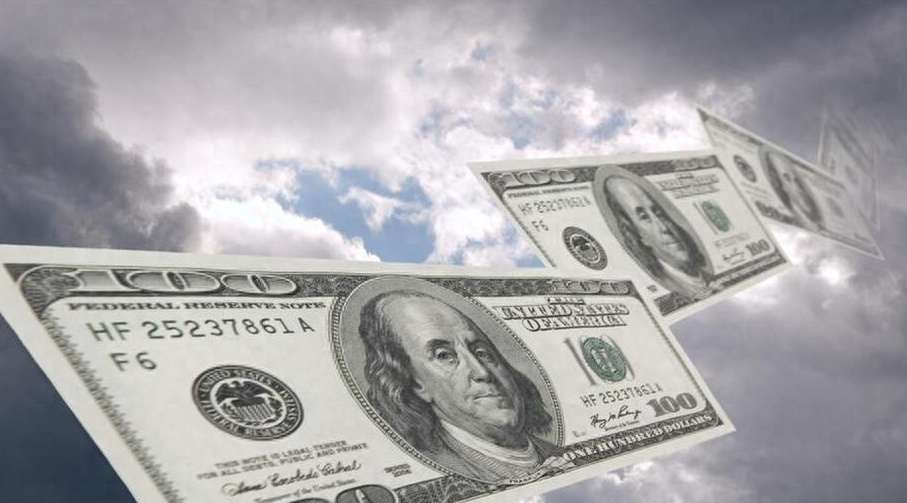- December 6, 2024
- Stocks Information
Inflation is Declining, Supporting Further Rate Cuts
Advertisements
On Wednesday, a prominent member of the Federal Reserve, Governor Christopher Waller, who has been wielding significant influence over the Federal Open Market Committee (FOMC) during his tenure, made a bold declaration regarding inflation trends in the U.S. economy. Waller believes that inflation is well on its way downwards and moving towards the central bank's target of 2%, backing the proposition for further interest rate cuts this year. His remarks came during an event organized by the Organisation for Economic Co-operation and Development (OECD) in Paris, where he openly countered the prevailing concerns among Fed officials who had been cautious about hastening additional rate cuts.
There has been a notable record of interest rate reductions by the Federal Reserve starting from September, where officials, including Fed Chair Jerome Powell, communicated a reluctance to rush into further cuts. Much of this caution stems from persistent inflation fears and the overall robust labor market. Current market projections indicate that there is an almost negligible chance of rate cuts occurring during the forthcoming meeting scheduled for January 28-29, according to futures markets.
Waller argued that despite recent calls to slow down or halt the reduction of policy interest rates due to minimal progress in inflation metrics, he remains confident that inflation will continue its descent toward the 2% target in the medium term, suggesting that more rate cuts are warranted. He affirmed, “As always, the extent of further easing will depend on the inflation data we see, but my baseline view is that more cuts would be appropriate.”
Looking ahead, Waller expressed support for the idea of continued rate reductions into 2025, contingent on achieving progress with inflation while simultaneously avoiding excessive weakness in the labor market. He emphasized that rates would not be returning to near-zero levels any time soon, indicating that while the labor market allows for a restrictive rate environment, it is not indicative of an impending recession.

Waller’s optimism regarding inflation returning to the Fed's goals stems from various factors. He stated that although the pace of inflation reduction might hit some snags, he anticipates that price growth would still inch towards the annual 2% target by 2025. This optimism is underpinned by six-month prospective inflation trends, encouraging data from November pricing, and the insightful analysis underlying one of the key inflation indicators, particularly the significance of estimated prices compared to observed prices.
Over the past few years, the data surrounding inflation has proven to be volatile, particularly in the aftermath of the COVID-19 pandemic. The Fed's preferred inflation measure—the core Personal Consumption Expenditures (PCE) price index—showed an annual increase of 2.8% in November, down from 3.2% a year earlier. Additionally, the six-month annualized inflation rate for November stood at 2.4%, moving steadily towards the 2% target. Notably, the more subdued pricing data from November, which saw the Personal Consumption Expenditures price index rise by only 0.1% month-over-month, reinforces this trend.
When dissecting the components of inflation, Waller identified that housing services and non-market services—classified under “estimated prices”—represent the most significant concerns currently. These estimated prices, derived from computation rather than direct measurement, may not offer reliable reflection on the supply-and-demand dynamics across the broader economy. Together, these categories make up about a third of the core PCE basket. However, focusing on the remaining two-thirds of the core PCE, price increases over the past twelve months have averaged less than 2%.
Furthermore, Waller acknowledged the uncertainties posed by geopolitical tensions, which could hypothetically elevate inflation levels by 2025. The potential impact of the new U.S. administration's policies on the economy and inflation remains significantly uncertain, though Waller noted that hikes in tariffs are unlikely to yield a persistent impact on inflation and would not alter his perspectives on interest rate expectations.
Overall, Waller characterized the underpinnings of the U.S. economy as “solid,” referencing that in the past nine quarters, the real Gross Domestic Product (GDP) growth rate exceeded 2% in eight of those quarters. The employment situation is also approaching the Fed's full employment target. He indicated that neither the current data nor forecasts reveal any clear signs that the labor market will experience significant deterioration in the coming months.
In discussions concerning the ramifications of policies, Waller projected that tariffs would not hold significant or enduring influence over inflation and are not expected to shift his stance on appropriate monetary policy moving forward. His commitment to reevaluating grounds for monetary policy adjustments in light of evolving economic circumstances thus underscores the Fed's nuanced approach to managing inflation and economic growth amidst an increasingly complex landscape.
- 598 Comments
- 126
- 151